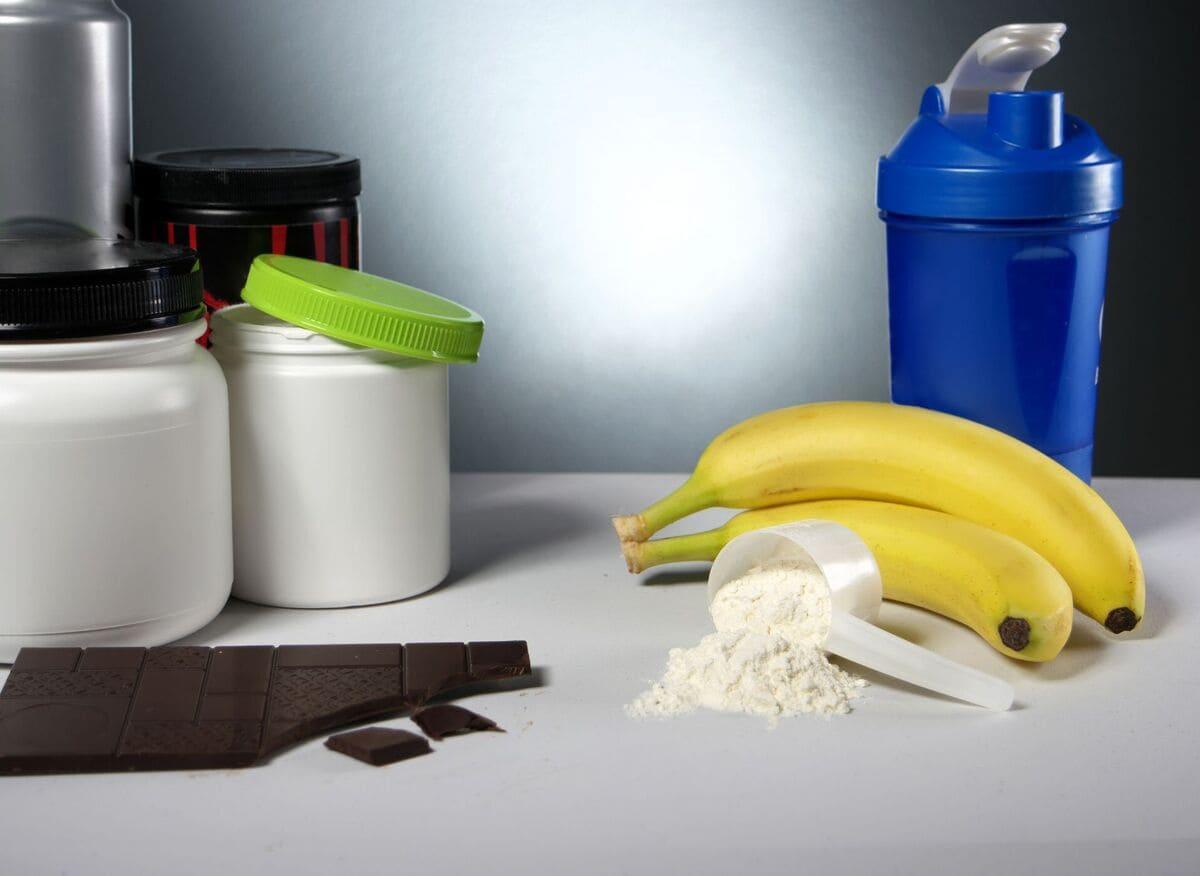Best Creatine for Maximum Strength Gains: A Comprehensive Guide

January 29, 2024
In the world of fitness and strength training, few supplements have garnered as much attention as creatine. If you're looking to increase your strength, power, and muscle mass, choosing the best creatine can make all the difference. With countless options available on the market, how do you know which one will deliver the best results for your specific goals? In this comprehensive guide, we’ll break down the science behind creatine, highlight the top forms available, and offer tips on how to make the most of this powerhouse supplement.
Whether you're a seasoned lifter or just getting started in the gym, understanding what makes the best creatine for strength gains can help you maximize your workouts and reach your fitness potential faster. Let’s dive into the details of why creatine is essential, and how to choose the right one for you.
What is Creatine and How Does It Work?
Creatine is a naturally occurring compound found in muscle cells, primarily helping your muscles produce energy during high-intensity workouts like lifting weights or sprinting. About 95% of your body’s creatine is stored in muscles as creatine phosphate, which helps regenerate adenosine triphosphate (ATP), the energy currency your muscles use to contract during physical exertion. This means creatine is essential for short bursts of explosive energy—making it a go-to supplement for strength athletes.
The Benefits of Creatine for Strength Gains
Using creatine as part of your training routine offers multiple benefits, especially when it comes to building strength and muscle. Here are some of the top ways creatine can help:
- Increases muscle energy: Creatine boosts ATP levels, allowing you to lift heavier weights or complete more reps.
- Improves recovery: Faster recovery between sets means more productive workouts.
- Enhances muscle volume: Creatine increases water retention within muscle cells, making your muscles look fuller and supporting long-term growth.
- Supports muscle growth: It’s one of the most researched supplements for stimulating muscle hypertrophy.
Given these advantages, choosing the best creatine can optimize your performance and help you get the most out of your workouts.
Different Types of Creatine: Which One is Best for You?
When selecting the best creatine, it’s essential to understand the different types available. Each form of creatine offers its own set of benefits, and the right one for you depends on your training goals, tolerance, and budget.
1. Creatine Monohydrate
Creatine monohydrate is the most well-researched and widely used form of creatine. It consists of creatine bonded with water molecules, making it incredibly effective and affordable.
Why choose creatine monohydrate?
- Proven results: Hundreds of studies have confirmed its effectiveness in increasing muscle strength, power, and size.
- Affordable: Creatine monohydrate is often the least expensive option available.
- Bioavailability: It is well-absorbed by the body, meaning more creatine reaches your muscles to support performance.
Most experts agree that if you're looking for the best creatine for maximum strength gains, creatine monohydrate should be your go-to. However, some people may experience mild digestive issues, such as bloating or cramping, with monohydrate, so it's worth exploring other options if that’s the case.
2. Creatine Hydrochloride
Creatine hydrochloride (HCl) is creatine bonded with hydrochloric acid, which makes it more soluble in water and potentially easier on the stomach.
Why consider creatine hydrochloride?
- Highly soluble: Dissolves better in water, leading to quicker absorption.
- Less bloating: Because of its superior solubility, it's less likely to cause bloating or digestive discomfort.
- Smaller doses required: You typically need to take less of it compared to creatine monohydrate due to its potency.
If you've had trouble with creatine monohydrate's side effects, creatine HCl might be the best creatine for you, offering similar strength benefits without the stomach upset.
3. Creatine Ethyl Ester
Creatine ethyl ester is creatine bonded with an ester group, which claims to improve creatine's absorption and effectiveness.
Why choose creatine ethyl ester?
- Improved absorption: Some studies suggest it’s more easily absorbed than creatine monohydrate.
- Potential for leaner muscle gains: Because it reduces water retention, some athletes believe it leads to leaner muscle gains.
While the research is less extensive than that of creatine monohydrate, some users prefer ethyl ester due to reduced water retention. If you're looking to stay lean while gaining strength, this could be the best creatine for you.
4. Creatine Nitrate
Our Top Recommendations

Optimum Nutrition Micronized Creatine Monohydrate Powder
Micronized for easy mixing, supports muscle growth and endurance.
See on Amazon$0.35 per 5g serving

Nutricost Creatine Monohydrate Micronized Powder
Third-party tested, non-GMO, 5g of pure creatine per serving.
See on Amazon$0.2 per 5g serving

NSF Certified, supports muscle power and recovery.
See on Amazon$0.46 per 5g serving

ProMix Creatine Monohydrate Powder
Micronized, additive-free, ideal for performance and recovery.
See on Amazon$0.36 per 5g serving

NOW Foods Sports Nutrition Unflavored
100% pure creatine, GMP certified, boosts strength and endurance.
See on Amazon$0.2 per 5g serving
Creatine nitrate combines creatine with nitrate, offering the dual benefit of creatine's strength-boosting effects and nitrate’s ability to enhance blood flow.
Why try creatine nitrate?
- Improved blood flow: Nitrates can enhance vasodilation, leading to better muscle pumps and oxygen delivery during workouts.
- Enhanced endurance: This form may be more beneficial for athletes who want a combination of strength and endurance improvements.
Creatine nitrate may be the best creatine for those looking to increase both power and endurance, particularly in sports like CrossFit or MMA, where stamina is key.
How to Take Creatine for Maximum Strength Gains
Now that you know the different types of creatine, it's essential to understand how to use it effectively to maximize your strength gains. Here’s a step-by-step guide on how to incorporate creatine into your daily routine:
1. Start with a Loading Phase
When you first begin taking creatine, it's common to do a "loading phase" to saturate your muscles with creatine quickly. During the loading phase, you’ll take a higher dose for 5-7 days. A typical loading dose is:
- 20 grams per day, split into 4 servings of 5 grams each.
The purpose of this phase is to build up creatine stores in your muscles, allowing you to experience the benefits faster.
2. Follow with a Maintenance Dose
After the loading phase, you switch to a lower maintenance dose to keep your muscles topped off with creatine. The standard maintenance dose is:
- 3-5 grams per day, depending on your body weight and training intensity.
Consistency is key when taking creatine, so aim to take your daily dose at the same time each day, whether pre-workout or post-workout.
3. Drink Plenty of Water
Creatine pulls water into your muscles, which is why it's important to stay hydrated. Aim to drink at least:
- 8-10 glasses of water per day to avoid dehydration.
Staying hydrated will help reduce the likelihood of cramping or bloating and improve the overall effectiveness of creatine.
4. Combine with Resistance Training
Creatine works best when paired with resistance training. Ensure your workout routine focuses on strength-building exercises like:
- Squats
- Deadlifts
- Bench presses
These compound movements will allow you to maximize the strength gains from creatine supplementation.
Frequently Asked Questions About Creatine
Is creatine safe to use long-term?
Yes, creatine is one of the most well-studied supplements and is considered safe for long-term use by healthy individuals.
Do I need to cycle off creatine?
There’s no need to cycle off creatine, as the body naturally regulates its creatine levels. You can take it continuously without experiencing diminishing returns.
Can creatine cause weight gain?
Creatine can cause an increase in water weight, especially in the first few weeks. However, this is temporary, and the strength gains will lead to lean muscle growth over time.
Should I take creatine on rest days?
Yes, continue taking creatine on rest days to maintain your muscle creatine levels.
Conclusion: Finding the Best Creatine for Your Strength Goals
Creatine is an invaluable supplement for anyone looking to build strength, improve performance, and increase muscle mass. Whether you opt for creatine monohydrate, creatine HCl, or creatine nitrate, the key is finding the right type that suits your body and training style. The best creatine is the one that supports your individual goals while providing noticeable strength improvements.
By understanding the different forms of creatine, how to use them, and combining them with a solid workout routine, you’ll be well on your way to making maximum strength gains. Ready to take your training to the next level? Check out our in-depth reviews of the best creatine supplements available today (internal link), and find out which product is right for you.
Stay consistent, hydrate, and lift heavy!






